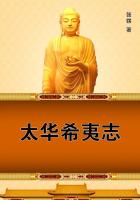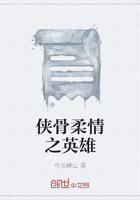"When I came to myself, monsieur, I was in a position and an atmosphere of which I could give you no idea if I talked till to-morrow. the little air there was to breathe was foul. I wanted to move, and found no room. I opened my eyes, and saw nothing. The most alarming circumstance was the lack of air, and this enlightened me as to my situation. I understood that no fresh air could penetrate to me, and that I must die. This thought took off the sense of intolerable pain which had aroused me. There was a violent singing in my ears. I heard--or I thought I heard, I will assert nothing--groans from the world of dead among whom I was lying. Some nights I still think I hear those stifled moans; though the remembrance of that time is very obscure, and my memory very indistinct, in spite of my impressions of far more acute suffering I was fated to go through, and which have confused my ideas.
"But there was something more awful than cries; there was a silence such as I have never known elsewhere--literally, the silence of the grave. At last, by raising my hands and feeling the dead, I discerned a vacant space between my head and the human carrion above. I could thus measure the space, granted by a chance of which I knew not the cause. It would seem that, thanks to the carelessness and the haste with which we had been pitched into the trench, two dead bodies had leaned across and against each other, forming an angle like that made by two cards when a child is building a card castle. Feeling about me at once, for there was no time for play, I happily felt an arm lying detached, the arm of a Hercules! A stout bone, to which I owed my rescue. But for this unhoped-for help, I must have perished. But with a fury you may imagine, I began to work my way through the bodies which separated me from the layer of earth which had no doubt been thrown over us--I say us, as if there had been others living! I worked with a will, monsieur, for here I am! But to this day I do not know how I succeeded in getting through the pile of flesh which formed a barrier between me and life. You will say I had three arms. This crowbar, which I used cleverly enough, opened out a little air between the bodies I moved, and I economized my breath. At last I saw daylight, but through snow!
"At that moment I perceived that my head was cut open. Happily my blood, or that of my comrades, or perhaps the torn skin of my horse, who knows, had in coagulating formed a sort of natural plaster. But, in spite of it, I fainted away when my head came into contact with the snow. However, the little warmth left in me melted the snow about me; and when I recovered consciousness, I found myself in the middle of a round hole, where I stood shouting as long as I could. But the sun was rising, so I had very little chance of being heard. Was there any one in the fields yet? I pulled myself up, using my feet as a spring, resting on one of the dead, whose ribs were firm. You may suppose that this was not the moment for saying, 'Respect courage in misfortune!'
In short, monsieur, after enduring the anguish, if the word is strong enough for my frenzy, of seeing for a long time, yes, quite a long time, those cursed Germans flying from a voice they heard where they could see no one, I was dug out by a woman, who was brave or curious enough to come close to my head, which must have looked as though it had sprouted from the ground like a mushroom. This woman went to fetch her husband, and between them they got me to their poor hovel.
"It would seem that I must have again fallen into a catalepsy--allow me to use the word to describe a state of which I have no idea, but which, from the account given by my hosts, I suppose to have been the effect of that malady. I remained for six months between life and death; not speaking, or, if I spoke, talking in delirium. At last, my hosts got me admitted to the hospital at Heilsberg.
"You will understand, Monsieur, that I came out of the womb of the grave as naked as I came from my mother's; so that six months afterwards, when I remembered, one fine morning, that I had been Colonel Chabert, and when, on recovering my wits, I tried to exact from my nurse rather more respect than she paid to any poor devil, all my companions in the ward began to laugh. Luckily for me, the surgeon, out of professional pride, had answered for my cure, and was naturally interested in his patient. When I told him coherently about my former life, this good man, named Sparchmann, signed a deposition, drawn up in the legal form of his country, giving an account of the miraculous way in which I had escaped from the trench dug for the dead, the day and hour when I had been found by my benefactress and her husband, the nature and exact spot of my injuries, adding to these documents a description of my person.
"Well, monsieur, I have neither these important pieces of evidence, nor the declaration I made before a notary at Heilsberg, with a view to establishing my identity. From the day when I was turned out of that town by the events of the war, I have wandered about like a vagabond, begging my bread, treated as a madman when I have told my story, without ever having found or earned a sou to enable me to recover the deeds which would prove my statements, and restore me to society. My sufferings have often kept me for six months at a time in some little town, where every care was taken of the invalid Frenchman, but where he was laughed at to his face as soon as he said he was Colonel Chabert. For a long time that laughter, those doubts, used to put me into rages which did me harm, and which even led to my being locked up at Stuttgart as a madman. And indeed, as you may judge from my story, there was ample reason for shutting a man up.
"At the end of two years' detention, which I was compelled to submit to, after hearing my keepers say a thousand times, 'Here is a poor man who thinks he is Colonel Chabert' to people who would reply, 'Poor fellow!' I became convinced of the impossibility of my own adventure.














